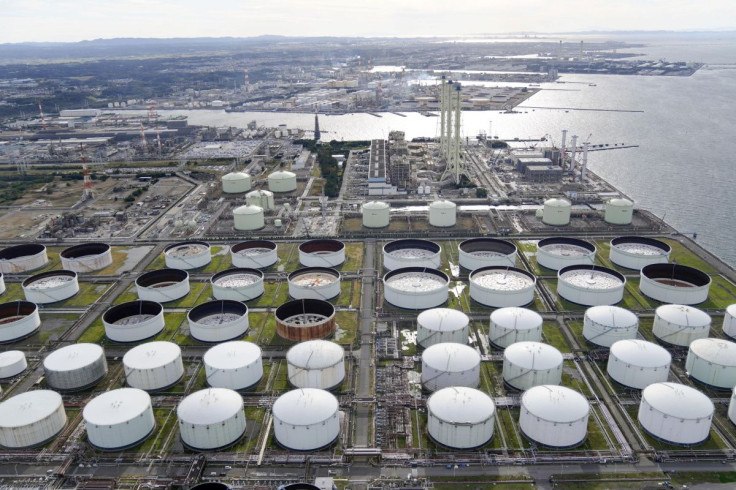Oil Prices Inch Lower As China COVID, Recession Worries Outweigh Tight Supply

Oil prices inched lower after seesawing through early trading on Tuesday, as worries that fuel demand would be hit by a possible recession and fresh COVID-19 curbs in China outweighed tight global supplies.
U.S. West Texas Intermediate (WTI) crude fell 22 cents, or 0.2% to $120.71 a barrel at 0353 GMT, while Brent crude futures eased 25 cents, or 0.2%, to $122.02 a barrel.
"Discussion within the oil complex still revolves around Libya's decline in production, China continuing to impose measures to slow the spread of COVID, and concerns around global recession woes driving demand destruction," said Stephen Innes, managing partner at SPI Asset Management.
In China, a COVID outbreak at a bar in Beijing has raised fears of a new phase of lockdowns just as restrictions were being eased and fuel demand was expected to firm.
The Chinese capital's most populous district, Chaoyang, kicked off a three-day mass testing campaign among its roughly 3.5 million residents on Monday. About 10,000 close contacts of the bar's patrons have been identified, and their residential buildings put under lockdown.]
Looking ahead, oil prices may face more pressure if the U.S. Federal Reserve surprises the markets with a higher-than-expected interest rate hike, CMC Markets analyst Tina Teng said.
"Otherwise, traders' focus will go back to China's COVID restrictions, when we could see prices tracing the demand outlook of the world's second-largest economy," she added.
Capping losses were tight global supplies, aggravated by a drop in exports from Libya amid a political crisis that has hit output and ports as other producers to meet their production targets and Russia faces bans on its oil over the war in Ukraine.
ANZ Research analysts cited Libya's oil minister Mohamed Aoun saying production in the country has dropped to 100,000 barrels per day from 1.2 million bpd last year.
The market will be awaiting weekly U.S. inventory data from the American Petroleum Institute on Tuesday and the U.S. Energy Information Administration on Wednesday for a view of how tight crude and fuel supply remain.
Six analysts polled by Reuters expect U.S. crude inventories fell by 1.2 million barrels in the week to June 3, while forecasting that gasoline stockpiles rose by about 800,000 barrels and distillate inventories, which include diesel and heating oil, were unchanged.
© Copyright Thomson Reuters 2024. All rights reserved.





















